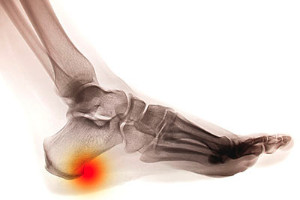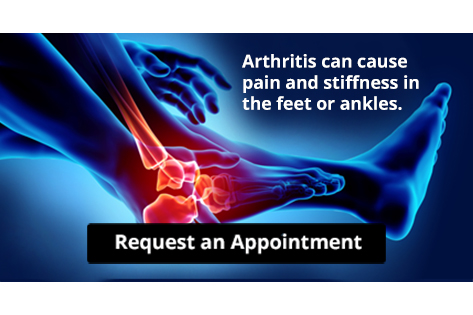
Plantar warts are small growths that develop on parts of the feet that bear weight. They're typically found on the bottom of the foot. Don't live with plantar warts, and call us today!
 An uncomfortable ailment that causes the feet to sweat excessively is referred to as plantar hyperhidrosis. This condition may lead to foot odor, as well as medical conditions that can include toenail fungus or athlete’s foot. Hyperhidrosis occurs as a result of sweat glands that produce large quantities of sweat, which in turn, may cause embarrassment among affected patients. Research has indicated there may be methods that can be implemented which can help to manage this condition. These can include wearing the right socks for the corresponding season, choosing shoes that are made out of breathable materials, and applying an antifungal powder on a regular basis. Additionally, it may be beneficial to drink plenty of water, as this may help to maintain the normal body temperature. If you are afflicted with plantar hyperhidrosis, it is advised that you are under the care of a podiatrist for professional care and treatment.
An uncomfortable ailment that causes the feet to sweat excessively is referred to as plantar hyperhidrosis. This condition may lead to foot odor, as well as medical conditions that can include toenail fungus or athlete’s foot. Hyperhidrosis occurs as a result of sweat glands that produce large quantities of sweat, which in turn, may cause embarrassment among affected patients. Research has indicated there may be methods that can be implemented which can help to manage this condition. These can include wearing the right socks for the corresponding season, choosing shoes that are made out of breathable materials, and applying an antifungal powder on a regular basis. Additionally, it may be beneficial to drink plenty of water, as this may help to maintain the normal body temperature. If you are afflicted with plantar hyperhidrosis, it is advised that you are under the care of a podiatrist for professional care and treatment.
If you are suffering from hyperhidrosis contact Dr. Alexander Terris of Total Foot Care. Our doctor can provide the care you need to attend to all of your foot and ankle needs.
Hyperhidrosis of the Feet
Hyperhidrosis is a rare disorder that can cause people to have excessive sweating of their feet. This can usually occur all on its own without rigorous activity involved. People who suffer from hyperhidrosis may also experience sweaty palms.
Although it is said that sweating is a healthy process meant to cool down the body temperature and to maintain a proper internal temperature, hyperhidrosis may prove to be a huge hindrance on a person’s everyday life.
Plantar hyperhidrosis is considered to be the main form of hyperhidrosis. Secondary hyperhidrosis can refer to sweating that occurs in areas other than the feet or hands and armpits. Often this may be a sign of it being related to another medical condition such as menopause, hyperthyroidism and even Parkinson’s disease.
In order to alleviate this condition, it is important to see your doctor so that they may prescribe the necessary medications so that you can begin to live a normal life again. If this is left untreated, it is said that it will persist throughout an individual’s life.
A last resort approach would be surgery, but it is best to speak with your doctor to find out what may be the best treatment for you.
If you have any questions please feel free to contact our office located in Wilmington, DE. We offer the newest diagnostic and treatment technologies for all your foot and ankle needs.
Read more about Hyperhidrosis of the Feet
Pain in the heel and surrounding area may be indicative of a heel spur. It is considered to be a bony growth that develops on the heel of the foot. It can grow in length, and extend to the middle of the foot, which may cause severe pain and discomfort. The symptoms that many patients experience typically consist of a sharp pain in the heel after arising in the morning, heat coming from the affected area, and the heel may be extremely tender, which may inhibit walking. This condition can occur as a patient ages, which may also contribute to the soft tissue becoming thinner in the heel. It may happen as a result of an injury that previously occurred to the heel, wearing shoes that do not fit correctly, or it may develop from being overweight. If you are afflicted with a heel spur, it is strongly suggested that you are under the care of a podiatrist who can properly treat this condition.
Heel spurs can be incredibly painful and sometimes may make you unable to participate in physical activities. To get medical care for your heel spurs, contact Dr. Alexander Terris from Total Foot Care. Our doctor will do everything possible to treat your condition.
Heels Spurs
Heel spurs are formed by calcium deposits on the back of the foot where the heel is. This can also be caused by small fragments of bone breaking off one section of the foot, attaching onto the back of the foot. Heel spurs can also be bone growth on the back of the foot and may grow in the direction of the arch of the foot.
Older individuals usually suffer from heel spurs and pain sometimes intensifies with age. One of the main condition's spurs are related to is plantar fasciitis.
Pain
The pain associated with spurs is often because of weight placed on the feet. When someone is walking, their entire weight is concentrated on the feet. Bone spurs then have the tendency to affect other bones and tissues around the foot. As the pain continues, the feet will become tender and sensitive over time.
Treatments
There are many ways to treat heel spurs. If one is suffering from heel spurs in conjunction with pain, there are several methods for healing. Medication, surgery, and herbal care are some options.
If you have any questions feel free to contact our office located in Wilmington, DE. We offer the latest in diagnostic and treatment technology to meet your needs.
Read more about Heel Spurs Foot conditions are generally a common ailment among pregnant women. The weight from increased blood volume, as well as the growing fetus, may cause the feet to become flat, which can produce sharp or aching pains. Moderate relief may be found when shoes that are worn fit properly. To ensure a perfect fit and for extra support, it may help to wear custom-made orthotics. Additionally, swollen feet and ankles are a common ailment among pregnant patients, and can be uncomfortable. It is beneficial to elevate the feet frequently during the day, as this may help to reduce existing swelling. Some pregnant women experience ingrown toenails, which may be a result of changes in the size and shape of the toenail. If you would like more information about how your feet may be affected during pregnancy, it is recommended that you consult with a podiatrist.
Foot conditions are generally a common ailment among pregnant women. The weight from increased blood volume, as well as the growing fetus, may cause the feet to become flat, which can produce sharp or aching pains. Moderate relief may be found when shoes that are worn fit properly. To ensure a perfect fit and for extra support, it may help to wear custom-made orthotics. Additionally, swollen feet and ankles are a common ailment among pregnant patients, and can be uncomfortable. It is beneficial to elevate the feet frequently during the day, as this may help to reduce existing swelling. Some pregnant women experience ingrown toenails, which may be a result of changes in the size and shape of the toenail. If you would like more information about how your feet may be affected during pregnancy, it is recommended that you consult with a podiatrist.
Pregnant women with swollen feet can be treated with a variety of different methods that are readily available. For more information about other cures for swollen feet during pregnancy, consult with Dr. Alexander Terris from Total Foot Care. Our doctor will attend to all of your foot and ankle needs.
What Foot Problems Can Arise During Pregnancy?
One problem that can occur is overpronation, which occurs when the arch of the foot flattens and tends to roll inward. This can cause pain and discomfort in your heels while you’re walking or even just standing up, trying to support your baby.
Another problem is edema, or swelling in the extremities. This often affects the feet during pregnancy but tends to occur in the later stages.
How Can I Keep My Feet Healthy During Pregnancy?
If you have any questions please feel free to contact our office located in Wilmington, DE. We offer the newest diagnostic and treatment technologies for all your foot and ankle needs.
Read more about Foot Care for Pregnant Women
If you are suffering from tenderness, pain, or stiffness in the joints of your feet or ankles, call us to schedule an appointment.
 The medical ailment that is known as athlete’s foot often causes discomfort. It is a fungus that affects the skin on the feet. It can produce symptoms that may consist of intense itching between the toes and on the bottom of the feet, the skin may become dry and cracked, and the toenails may become discolored. This condition can develop as a result of wearing shoes and socks that are too tight, and walking barefoot in public areas that include swimming pools, locker rooms, and communal showers. This contagious fungus lives and thrives in warm and moist environments, which is why it is recommended to wear appropriate shoes while in these places. If you have become afflicted with athlete’s foot, it is advised that you are under the care of a podiatrist who can determine the best course of treatment for you.
The medical ailment that is known as athlete’s foot often causes discomfort. It is a fungus that affects the skin on the feet. It can produce symptoms that may consist of intense itching between the toes and on the bottom of the feet, the skin may become dry and cracked, and the toenails may become discolored. This condition can develop as a result of wearing shoes and socks that are too tight, and walking barefoot in public areas that include swimming pools, locker rooms, and communal showers. This contagious fungus lives and thrives in warm and moist environments, which is why it is recommended to wear appropriate shoes while in these places. If you have become afflicted with athlete’s foot, it is advised that you are under the care of a podiatrist who can determine the best course of treatment for you.
Athlete’s Foot
Athlete’s foot is often an uncomfortable condition to experience. Thankfully, podiatrists specialize in treating athlete’s foot and offer the best treatment options. If you have any questions about athlete’s foot, consult with Dr. Alexander Terris from Total Foot Care. Our doctor will assess your condition and provide you with quality treatment.
What Is Athlete’s Foot?
Tinea pedis, more commonly known as athlete’s foot, is a non-serious and common fungal infection of the foot. Athlete’s foot is contagious and can be contracted by touching someone who has it or infected surfaces. The most common places contaminated by it are public showers, locker rooms, and swimming pools. Once contracted, it grows on feet that are left inside moist, dark, and warm shoes and socks.
Prevention
The most effective ways to prevent athlete’s foot include:
Symptoms
Athlete’s foot initially occurs as a rash between the toes. However, if left undiagnosed, it can spread to the sides and bottom of the feet, toenails, and if touched by hand, the hands themselves. Symptoms include:
Diagnosis and Treatment
Diagnosis is quick and easy. Skin samples will be taken and either viewed under a microscope or sent to a lab for testing. Sometimes, a podiatrist can diagnose it based on simply looking at it. Once confirmed, treatment options include oral and topical antifungal medications.
If you have any questions, please feel free to contact our office located in Wilmington, DE. We offer the newest diagnostic and treatment technologies for all your foot care needs.
Read more about Athlete’s Foot